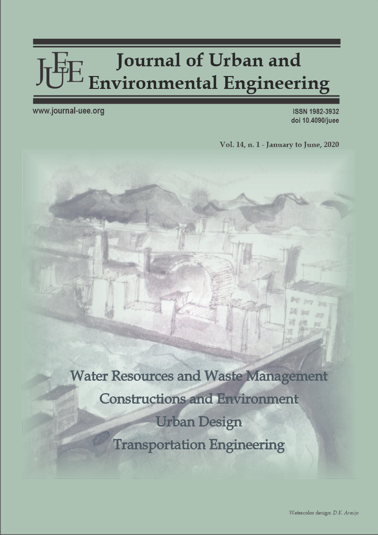DEVELOPING AND OPTIMISING AN URBAN INTEGRATED SOLID WASTE MANAGEMENT MODEL: EFFECT OF TRANSFER STATIONS
DOI:
https://doi.org/10.4090/juee.2020.v14n1.119-131Abstract
Solid waste management (SWM) is among the poorly rendered services in developing countries — limited resources, increasing population, rapid urbanisation and application of unscientific, outdated systems leads to inefficiency. Lack of proper planning and inadequate data regarding solid waste generation and collection compound the solid waste management problem. Given the large number of available waste management options and the inter-relationships among them, identifying SWM strategies that satisfy economic or environmental objectives is a complex task. The paper integrates the effects of transfer station(s) to a mathematical model developed for a municipal Integrated Solid Waste Management (ISWM) system and focusses on the effect of inclusion of transfer stations on the overall efficiency and cost-effectiveness of an ISWM system. The model then serves as decision support tool to evaluate various waste management alternatives and identifies the least cost optimal combination of technologies for the collection, transport, treatment and disposal of waste. The constraints include those linking waste flows and mass balance, processing plants capacity, landfill capacity, transport vehicle capacity and number of trips. The linear programming model integrating different functional elements was solved by LINGO optimisation software and various possible waste management options were considered during analysis.Downloads
Download data is not yet available.
Downloads
Published
2020-06-07
Issue
Section
Articles




